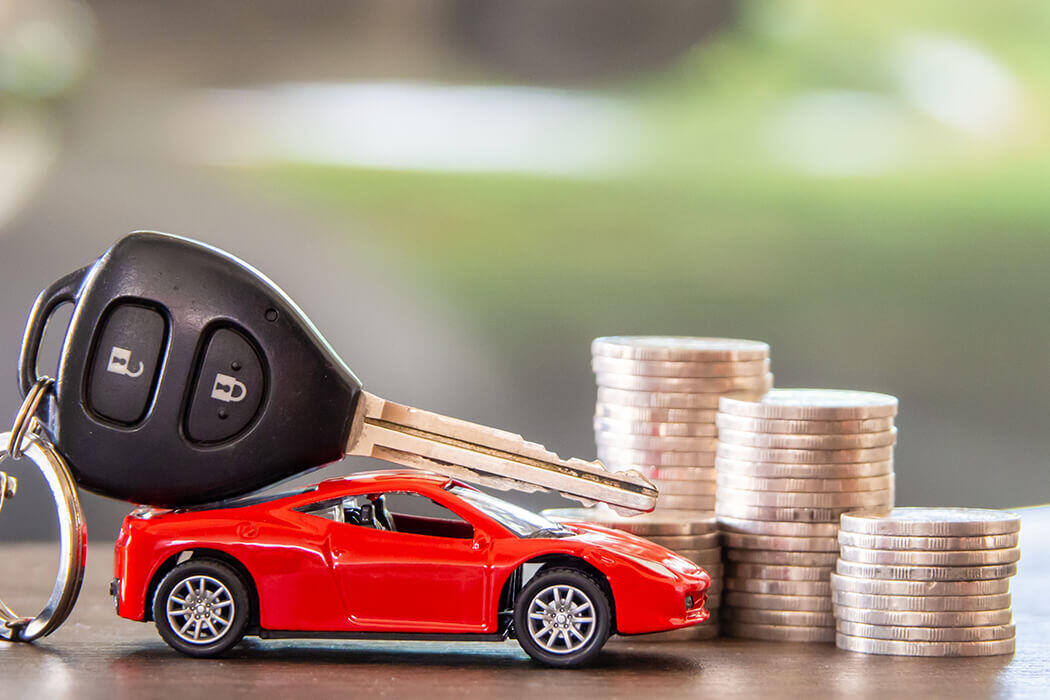How Do Car Loans Work?
Posted 30th March, 2023
As buying a car can be expensive, many people rely on finance to help them make the purchase. Being able to spread the cost over monthly instalments makes car buying more accessible and more affordable for those that otherwise couldn’t afford a lump sum payment.
Whether you need a new family-sized car to get around, or are looking for something compact to commute around town, a car loan can be ideal to help. So, how do car loans work, and what do you need to successfully apply for one? Below, our short guide will explain what you need to know about new and used car loans and how to get a car loan for the vehicle you need with a poor credit history.
How to Get a Car Loan - Types of Loan
If you’re wanting to buy a used or new car, there are a few different car loan options to be aware of. Each provides different features depending on your needs and circumstances. Like any type of loan, approval cannot be guaranteed by the lender until after credit and affordability checks are carried out. This ensures the loan is right for you and you can afford to sustain the repayments. The range of loan options will depend on who is providing the finance. You can choose to buy a car using a personal loan through a bank or high street lender, meaning you will own the car outright, or you can choose car dealer finance options.
Personal Contract Purchase (PCP) – PCP is an agreement with the lender that involves paying a deposit and then monthly repayments for a set period. At the end of this agreed period, you will then have the option to own the car outright, trade-in for another to start a new PCP agreement, or give back the car to the dealer and look at your other options.
Typically, the loan period will not be for the full value of the car which keeps your repayments affordable, and the deal will last between 3 – 5 years. When the agreed repayment period ends, the remaining value of the car will be left. It’s then up to you if you want to pay the full balance to own the car (called a balloon payment) or look at trading it in and using the remaining value to start a new agreement on a new car. This makes PCP an ideal option for those who want to change cars every few years.
Whilst PCP will provide affordable repayments for a set period, you will still need to pay a deposit lump sum at the beginning, usually a minimum of 10%. You’ll also be paying interest on your monthly repayments, so you’ll want to check the full terms of the PCP agreement to ensure you’re happy with the total cost of credit. The finance is secured against the car and you won’t own it until you’ve reached the end of the agreement and paid the balloon payment. If you struggle to maintain the repayments, the car could be repossessed if you do not sustain the loan.
Hire Purchase (HP) – An HP agreement is similar to PCP in that you won’t own the car until the end, however, there is no balloon payment or option to trade in for a new car. Buying a car on HP involves paying a deposit of at least 10% at the beginning, and then the rest of the car’s value is spread over monthly repayments including interest. The repayment term is usually up to 5 years, and at the end, the car will be yours.
With HP, the larger the deposit you can afford at the beginning, the lower the loan amount will be so that your repayments will be lower too. HP agreements will be more expensive than PCP monthly, as the whole value of the car is paid off rather than part of it. This is where HP is similar to a car personal loan as it is just a straightforward repayment agreement. When looking at HP agreements, it’s important to look at the minimum deposit required and what the interest charge will be, paying close attention to the total cost of credit. You’ll need to ensure you are happy with the total cost and with paying a lump sum upfront.
Personal car loans – these work similarly to a regular personal loan where you choose a fixed repayment term for the value of the car purchase. You won’t usually have to pay a deposit, and it means the loan can be used to buy the car outright from day one. Then, it’s just a case of maintaining the monthly instalments until it is paid off. This can be ideal for those who want to own a car straight away and not have the loan secured against the vehicle. Some lenders will provide secured car loans for more expensive vehicles, but these are generally similar to HP agreements.
Having a personal car loan also means you can sell the vehicle at any point too and pay off the remaining balance, as you will be the registered owner. Some people may prefer owning the car rather than hiring it under PCP or HP, however it doesn’t give you any trade-in option and the repayments may be higher.
Car Loans & Bad Credit
No matter which form of car loan you choose to buy a vehicle with, your credit history and score will be a deciding factor. If you have a history of poor credit, you may find your options are limited with some lenders. This means options like PCP may not be available or will be restricted, or you’ll need to pay a larger deposit to bring the loan amount down. When a lender runs a soft check, they will quickly see your creditworthiness and may decline for a low credit rating if it doesn’t meet their requirements.
However, if you’re looking at how to get a car loan with bad credit, there are some specialist car finance companies that may be able to help. It is best to research your loan options before applying to understand what’s potentially available to you as having a low credit score may reduce your options. Those who can help will need to ensure the loan is affordable for you, so you’ll want to make sure you have plenty of affordability and that a loan will not cause you financial difficulty to sustain.
Car Loans for Emergencies
Once you have your car, keeping it on the road requires regular maintenance. If a worst-case scenario happens such as your car breaking down, there are car repair loans that can help in emergencies. This type of loan is for people who do not have emergency savings to help or cannot resolve their car issue in any other way. They can also help those with bad credit as long as the lender can determine the loan is affordable for them.
They are a form of short-term borrowing that helps those who need it, when the unexpected happens, to pay to resolve their situation and then repay over a few months. They typically will be for lower value amounts, usually no more than a £2,000 loan, and can be taken out for up to 12 months.
Choosing the Right Car Loan for You
With car loans a great way to make car ownership more affordable, there is plenty to consider. Would the option of changing to a new car every few years be more beneficial, or would you rather have a simple repayment option on the car you want? It’s best to compare your options before applying and checking your credit report and score to review the information a lender can see about your finances.
At Fast Loan UK, whilst we do not provide car loans to purchase a vehicle, we do provide loan options for those who need cash quickly. If you have an unexpected bill which you cannot settle until your next payday or you do not have the savings to resolve, we may be able to help with a loan of up to £800 for new customers. You can use our loan calculator and click apply now to begin an application.
For more information that may help with your finances, as well as car finance options, please visit Money Helper.
